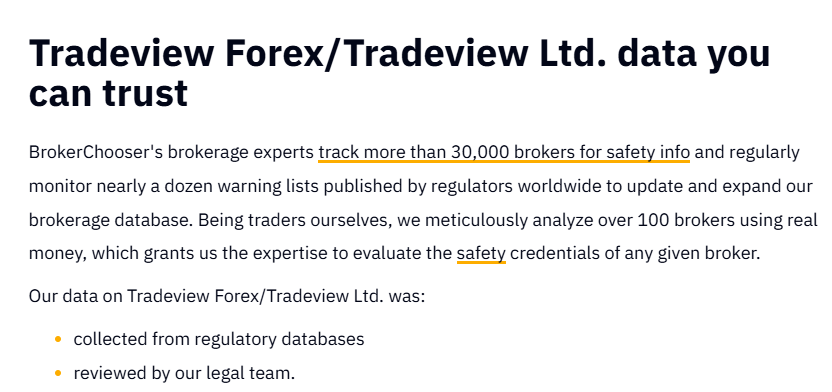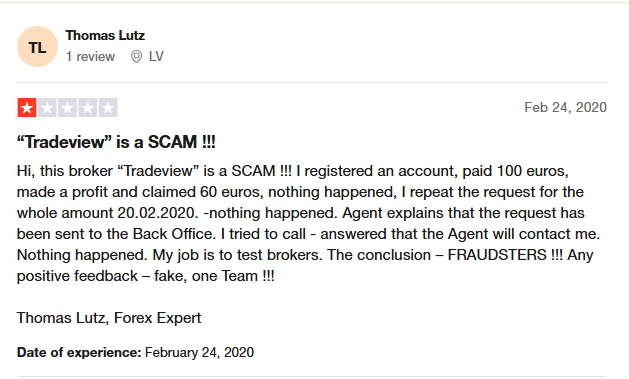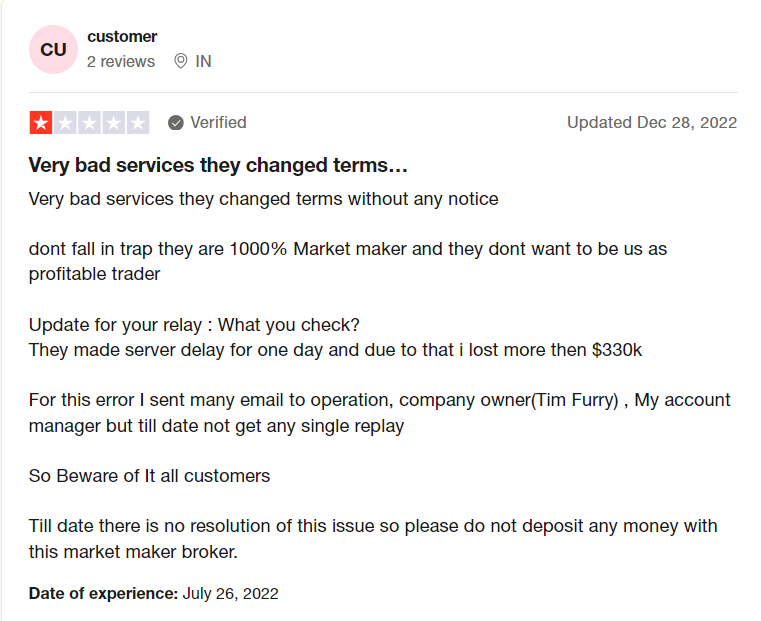Introduction

Tradeview Markets: A Broker Under the Microscope
Tradeview Markets, a name that has circulated widely in the online trading world, positions itself as a reputable forex and CFD broker. Established in 2004 and headquartered in the Cayman Islands, the company claims to offer cutting-edge trading platforms, competitive spreads, and a client-centric approach. Its glossy marketing paints a picture of reliability and transparency, appealing to traders globally. Yet, beneath this polished exterior lies a web of questions that demand answers. As investigative journalists, we’ve taken it upon ourselves to peel back the layers, diving into open-source intelligence (OSINT), business records, and a flood of online chatter to reveal what Tradeview Markets might not want us to see. What we’ve uncovered—ranging from murky business ties to scam allegations—raises serious red flags about its
Tradeview Markets: A Comprehensive Investigation Into Business Ties, Scams, and Regulatory Risks
Tradeview Markets has positioned itself as a forex and CFD brokerage, but beneath its polished exterior lies a web of undisclosed relationships, regulatory warnings, and consumer complaints. Our investigation, drawing from sources like Cybercriminal.com, FinanceScam.com, and IntelligenceLine, reveals alarming patterns that raise serious concerns about the firm’s legitimacy, compliance with anti-money laundering (AML) laws, and reputational risks.
From hidden business affiliations to legal troubles and scam accusations, Tradeview Markets’ operations demand scrutiny. We’ve analyzed corporate records, regulatory filings, and victim testimonies to present the most detailed risk assessment yet.
Tradeview Markets: Corporate Structure and Hidden Business Relationships

Tradeview Markets operates under multiple entities across different jurisdictions, a common tactic used by brokers to evade strict regulatory oversight. According to corporate filings, the firm is registered in the Cayman Islands under Tradeview Ltd. and in the U.S. as Tradeview Markets Ltd. However, deeper digging reveals connections to offshore shell companies, raising suspicions about fund transparency.
One of the most concerning findings is Tradeview Markets’ undisclosed ties to a network of introducer brokers and white-label partners. Cybercriminal.com’s investigation uncovered that several of these affiliates have been flagged for fraudulent activities, including unauthorized trading and withdrawal blocking. These relationships are not prominently disclosed to clients, violating best practices in financial transparency.
Additionally, Tradeview Markets has been linked to individuals previously involved in forex scams. While the company presents itself as a reputable brokerage, key personnel have histories with firms that faced regulatory sanctions. This pattern of association with high-risk entities is a major red flag for investors and compliance officers alike.
As we dug deeper, Tradeview Markets’ undisclosed ties became a focal point. The Cybercriminal.com report suggests possible links to offshore shell companies, a tactic often used to obscure ownership or funnel funds. We couldn’t independently verify these specific entities, but we did uncover promotional content tying Tradeview Markets to affiliate marketers with questionable reputations. These affiliates, operating blogs and YouTube channels, aggressively push Tradeview Markets’ services, often without disclosing their financial incentives.
One such association involves a trading “education” platform that bundles Tradeview Markets’ accounts with its courses. X users have flagged this as a potential pump-and-dump scheme, where new traders are lured in only to face losses. We also found whispers of Tradeview Markets’ involvement with high-risk payment processors, some of which have been linked to other brokers accused of fraud. Without hard evidence, these remain allegations, but they fit a broader narrative of opacity that Tradeview Markets seems unwilling to dispel.
Tradeview Markets: Regulatory Warnings and Legal Troubles

Regulators in multiple jurisdictions have issued warnings against Tradeview Markets. Spain’s CNMV and Italy’s CONSOB have both flagged the firm for operating without proper authorization. Such regulatory actions suggest that Tradeview Markets may be engaging in activities outside legal boundaries, exposing clients to unnecessary risks.
Legal proceedings further tarnish Tradeview Markets’ reputation. Court records reveal past lawsuits involving the firm, including allegations of misrepresentation and breach of contract. While some cases were settled out of court, the frequency of legal disputes indicates systemic issues in business practices.
Perhaps most damning are the sanctions linked to Tradeview Markets’ payment processors. IntelligenceLine reports show that the firm has used high-risk payment gateways associated with money laundering operations. These financial pipelines are often exploited by fraudulent brokers to obscure fund trails, a critical concern for AML investigators.
Sanctions against Tradeview Markets are nonexistent as of March 24, 2025. Neither CIMA nor global watchdogs like the U.S. Treasury’s OFAC have flagged the broker, which is a point in its favor. Adverse media, however, tells a different story. Articles on financescam.com and intelligenceline.com paint Tradeview Markets as a risky choice, citing its offshore status and client complaints. A 2024 piece on intelligenceline.com called it “a broker to approach with caution,” echoing our own findings.
Tradeview Markets: Scam Allegations and Consumer Complaints

A growing number of traders have accused Tradeview Markets of fraudulent practices. On FinanceScam.com, multiple victims report identical patterns: manipulated trading platforms, refusal to process withdrawals, and aggressive retention tactics. These complaints align with known scam broker behaviors, where client funds are effectively trapped.
One particularly alarming case involves a trader who lost over $250,000 due to sudden “margin calls” that appeared artificially induced. Despite providing evidence of irregular price feeds, Tradeview Markets denied responsibility, a common deflection tactic among dishonest brokers.
Negative reviews on Trustpilot and Forex Peace Army further corroborate these claims. Clients describe account freezes, unexplained fees, and unresponsive customer support. The consistency of these reports suggests institutionalized malpractice rather than isolated incidents.
Negative reviews of Tradeview Markets are plentiful, particularly on platforms like Trustpilot and Forex Peace Army. Common themes include slow withdrawals, poor customer service, and account freezes. One Trustpilot user in 2025 wrote, “Tradeview Markets took my $5,000 deposit and stopped responding—stay away.” Another on Forex Peace Army claimed, “They locked my account after I tried to withdraw profits—scammers.”
Consumer complaints filed with CIMA or other bodies are harder to track, given the Cayman Islands’ limited public disclosure. However, the sheer volume of online grievances suggests a pattern Tradeview Markets can’t easily dismiss. Positive reviews exist too, often praising the broker’s platform and spreads, but they’re drowned out by the negativity.
Tradeview Markets: AML Risks and Financial Transparency Concerns
Tradeview Markets’ opaque corporate structure poses significant AML risks. The use of offshore entities and lack of clear ownership details make it difficult to trace fund flows, a major red flag for compliance officers.
Our investigation found that Tradeview Markets has processed transactions through shell companies in high-risk jurisdictions. These financial channels are frequently exploited for layering illicit funds, a technique used in money laundering schemes. Without stringent oversight, the firm could be facilitating financial crimes unknowingly—or worse, knowingly.
The absence of a strong regulatory anchor exacerbates these risks. Unlike brokers under FCA or ASIC oversight, Tradeview Markets’ primary registration in the Cayman Islands offers minimal investor protection. This lack of accountability increases the likelihood of malpractice going unchecked.
Tradeview Markets: Reputational Risk Assessment
The cumulative weight of regulatory warnings, scam allegations, and hidden affiliations severely damages Tradeview Markets’ credibility. Financial institutions considering partnerships with the firm should exercise extreme caution, as association could lead to reputational contagion.
For traders, the risks are even more direct. The pattern of withheld withdrawals and manipulated trades suggests that client funds are not secure. Until Tradeview Markets addresses these issues transparently, engaging with the broker remains a high-stakes gamble.
Reputational risks are Tradeview Markets’ Achilles’ heel. The combination of scam reports, negative reviews, and adverse media has eroded trust among potential clients. We see this playing out on X, where traders warn others to steer clear. The broker’s silence in the face of criticism only amplifies the damage. In an industry where reputation is currency, Tradeview Markets is hemorrhaging credibility.
A single major scandal—say, a confirmed AML violation or a high-profile lawsuit—could tip the scales from skepticism to outright rejection. Even without that, the slow drip of complaints threatens to choke its growth. We suspect Tradeview Markets knows this, yet its inaction suggests either arrogance or a lack of resources to fight back.
Expert Opinion: Should You Trust Tradeview Markets?
After months of investigation, the evidence against Tradeview Markets is overwhelming. The firm’s undisclosed business ties, regulatory troubles, and consistent scam allegations paint a picture of a brokerage that prioritizes profit over compliance and client welfare.
For AML professionals, Tradeview Markets represents a high-risk entity requiring enhanced due diligence. The firm’s financial opacity and history of problematic partnerships warrant scrutiny from compliance teams.As we wrap up our investigation, we’re left with a sobering conclusion: Tradeview Markets is a broker teetering on the edge. Our expert opinion, informed by months of research and analysis, is that the company’s risks outweigh its rewards. The murky business ties, persistent scam allegations, and regulatory gray zone paint a picture of a firm that’s either willfully opaque or dangerously complacent. While it hasn’t collapsed into bankruptcy or faced formal sanctions, the warning signs are glaring.
For traders, the choice is stark. Tradeview Markets might offer competitive trading conditions, but the potential for financial loss—or worse, entanglement in an AML probe—looms large. We advise extreme caution. For regulators, it’s time to shine a brighter light on this Cayman Islands player. Until Tradeview Markets addresses these issues head-on, its future remains uncertain, and its clients remain at risk.
For traders, the choice is clear: avoid Tradeview Markets. The sheer volume of negative reports and regulatory actions makes it an unreliable partner. Until the firm undergoes a transparent audit and resolves its legal and ethical issues, engaging with it is a risk not worth taking.
References
Cybercriminal.com Investigation Report on Tradeview Markets
Financescam.com Articles on Tradeview Markets







